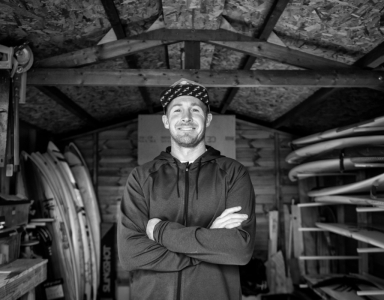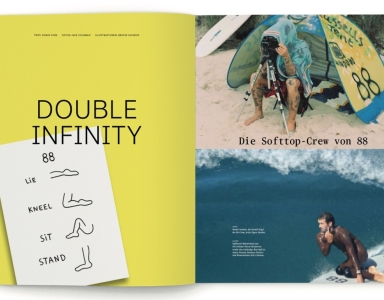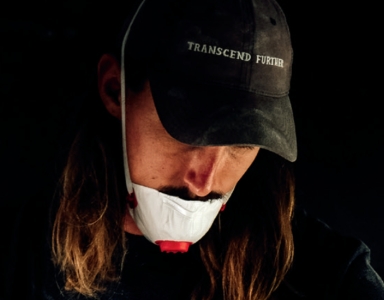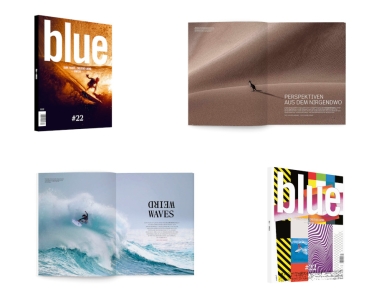Wenn es so etwas wie Surfjournalismus gibt, dann ist Chas Smith die herausragende Figur. Als Mitgründer des Online-Phänomens Beachgrit ist Chas auf Dauerkonfrontationskurs mit der gesamten Industrie und ist sich für keine Schlammschlacht zu schade. Chas vs. Mick Fanning, Chas vs. Backwards-Fin Beth, Chas vs. Stab Chef Ashton Goggans – Chas sitzt in seinem Beachgrit-Glashaus und wirft mit Steinen um sich. Mit seinen Büchern „Welcome to paradise, now go to hell“ und „Cocaine + Surfing – A love story” hat er bewiesen, dass seine beißende Ironie auch über 200 Seiten Bestand hat. In Interviews oder Podcasts kann es schon mal vorkommen, dass Chas über den Tisch hechtet und sein Gegenüber würgt (Surfsplendor Pod: Ab Minute 32). Doch in seinem Regie-Debüt nimmt er Abstand von der eigenen, unruhestiftenden Kunstfigur und widmet sich einer bewegenden Lebensgeschichte, die so bisher noch nicht erzählt wurde. „Trouble – The Lisa Andersen Story“ ist eine Underdogstory, wie für Chas gemacht und mit bisher unveröffentlichtem Archivmaterial ein abgefahrener Trip durch die Höhen und Tiefen des Lebens dieser wegweisenden Ikone des Surfens.
Nouvague-Connection sei Dank, habe ich einen direkten Draht zu Chas und kann ihm hin und wieder ein paar Fragen stellen. Dieses Interview fing an mit Fragen zum Film und endete mit Antworten über Kulturimperialismus, Oktoberfest und Terrorismus...
We interrupt your regularly scheduled German programming, to bring you: Chas Smith, surf journalist:
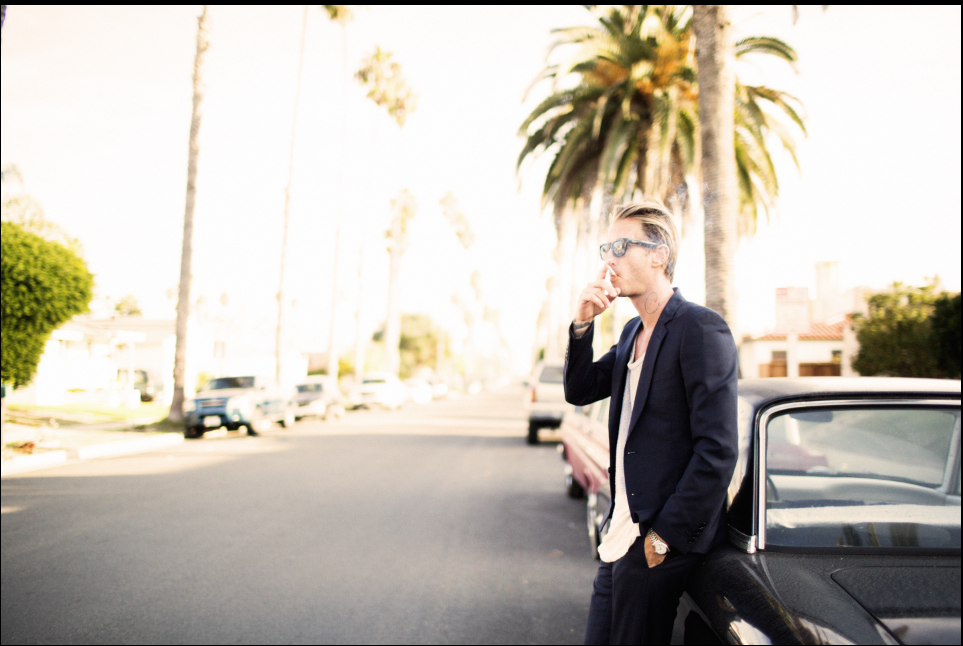
Chas?
Ready when you are.
Right! Let's talk "Trouble". What's the hook that made this a compelling story for you - and why tell it now?
Lisa has always been one of my very favorite surfers on earth. The way she moved through both water and life, in a seemingly effortless way, was magnetic. Also the fact that she quietly broke through obstacle after obstacle but never pumped her fist about her own accomplishments. She was a real trailblazer in so many ways.
And why was film the right medium for Lisa's story?
She filmed herself and her surroundings, voraciously. She told me that she bought a camera with one of her first contest win prize monies and, seriously, filmed everything. Like everything everything. It was amazing to have such an unfiltered look. A nightmare too, how much film we had to sort through, but mostly amazing to have that sort of extremely personal access.
What was your relationship with Lisa like, before starting this project? How did you approach her, about telling her story?
My wife has worked with Lisa for the past few years. When Roxy put some money aside for Lisa’s film I wrangled Joe G. to direct and I was going to write. Joe G. got crazy busy with all of his other projects and had to step aside but there was no way I was letting this film get into someone else’s hands. I couldn’t stand the idea of Lisa’s story becoming a standard, talking head sport’s documentary with all the wildly dumb superlatives etc. I wanted the film to be like Lisa. Quiet, beautiful and powerful without needing to say everything. I told her that I wanted complete honesty and she gave it to me, which was very trusting of her.
The film has its intimate and raw moments. What is the process like working up these scenes?
I just shut up and let her talk. She was willing to do the work, to go into the dark corners of her life because she knew, I think, that those experiences would resonate with people. I tried to make her feel safe, then stayed well out of the way.

Most people know you for beachgrit short-form grenade lobbing, probably for long-form novel grenade lobbing and maybe for coffee table leaping. How does filmmaking fit into that arsenal and what itch does it scratch?
No! I don’t like the process of making film… it is brutal, brutal, brutal… but I love films! So I guess I’m stuck. Also, they allow for introspection, quietness and different sorts of storytelling. At the end of the day, I suppose, I really just love stories.
Here's a quote from you, that I've heard in various iterations: "I get off when people criticize me. Or want to kill me. I don’t care when people say nice things, but I love when they say hideous things. I made someone type into their computer about how narcissistic I am. I win." - Makes sense for beachgrit - but what about something as earnest as this film? Is telling this story a means to an end or is telling it the purpose in itself?
I think telling it was the purpose itself, which feels nice. I throw myself in front of the proverbial lens, in my writing, because I can say things through that voice that I’d feel uncomfortable having other people say, if that makes sense. The “Chas Smith” persona is a means to an end. This film, and any film I’ll ever make because I’m absolute shit in front of a real lens… probably even worse than that cop-calling pussy Ashton Goggans, if you can believe… is simply about the subject.
Who inspires you in terms of filmmaking? Who tells the best stories?
I think Joe G. does a magnificent job telling visual stories, in the surf, and I really like Michael Oblowitz’s rambling narratives and also like what Ben Gulliver is doing. Wow. Three surf film makers right there! Regular proper good filmmakers… toss me in front of a Tarantino film (except that forever long cowboy one) and I’m happy as a clam.
Since we're here, a few non-film related questions to close this thing out:
Would you agree that the entire euro surf-scene is marginalized by American and Australian culture-imperialists? How do we - German landlocked surfers especially - ever graduate from perpetual VAL (Vulnerable Adult Learner) status? Or should we embrace it?
So I’m actually thinking about this a lot lately. I’ve really fallen in love with sailing in the last few years but am also a total and complete VAL. To embrace it, with all the layered kookiness is not a good look. To pretend not to be a VAL is also not a good look. So what are we left with? I’ve been trying to find a medium of earnestly trying to get better while staying out of everyone’s way and not talking about it… Shit. I just talked about it. But with surfing, surf culture is as much a part of the… essence… as actually surfing and I think the VAL can smash through VALness by becoming an epic part of that culture. Creating things, seeing things differently, making sure not to wear Aquasocks etc.
Barrel or Nah:
Cultural appropriation?
Biggest, arms spread wide like Andy Irons in a Teahupo'o beast barrel!
River surfing?
I’ve never actually tried river surfing but it is barrel, isn’t it? Like super fun? It looks super fun.
Oktoberfest?
Barrel! I went to Oktoberfest a long time ago, drank a giant beer, ate a giant plate of meat then wobbled to a church and fell asleep on the stairs. When I woke up many Germans were standing around me pointing and laughing. I totally VAL’d it.
Stereotypes?
Kai Lenny Jaws‘ barrel. Is anything on earth more fun?
When is your newest book dropping and will it actually not be surf-related this time?
Tentatively set for this coming spring though I’m in the middle of re-write hell right now. It is about the Global War on Terror but littered with surf. The world’s first surfing/terrorism book! I’ve accepted my fate. My name is Chas Smith and I’m a surf journalist.
Ha!
//
"Trouble - The Lisa Andersen Story" ist diesen Sommer auf Surf Film Nacht Tour. Termine und Tickets gibt's über die SFN Eventpages - Hier gibt's alle Tourdates und Städte in der Übersicht. Don't miss this one!


